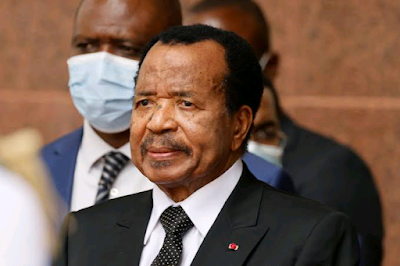Cameroon’s top judicial body confirmed President Paul Biya’s victory in the presidential contest held on October 12, 2025.
The 92-year-old leader obtained 53.66% of ballots, edging out rival Issa Tchiroma Bakary who received 35.19%. The declaration came on Monday, with the council head stating the formal election of Biya.
Extended Leadership Horizon
Biya, in office since 1982, now embarks on another seven-year period, possibly lasting until 2032 and his near-centennial age.
This result represents a reduced majority compared to past triumphs, amid a population where youth dominate.
Supporters vs. Critics
Advocates view the win as evidence of sustained order in a volatile area. Opponents regard it as continuation of entrenched authority bypassing generational shift.
Decades of Governance
Biya removed presidential term restrictions in 2008, allowing ongoing candidacy. Proponents highlight avoidance of regional upheavals and management of resource-based economy. Cameroon evaded recent military interventions seen elsewhere.
Challenges persist: modest economic expansion fails to absorb young job seekers; ongoing separatist conflict displaces many, met primarily with force. Leader’s overseas trips spark health speculation and heir uncertainty.
Claims of Irregularities
Tchiroma announced his own triumph beforehand, based on alternative tabulations showing him ahead. He denounced the process and rallied for demonstrations against altered figures.
Accusations include flawed voter lists, ballot tampering, and pressure tactics. Ruling party dismisses complaints as unfounded.
Leading contenders excluded via disqualifications. Family discord evident in public dissent from a relative.
Monitoring groups reported subdued city voting, shifted polling sites, and overall 52% engagement. Appointed council rapidly upheld results.
Post-Result Unrest
Anticipatory strain escalated into confrontations. In major commercial hub Douala, security actions resulted in fatalities and numerous detentions. Comparable disturbances in capital and other centers involved suppression of media and organizers.
Defense allocation significant, questioning priority between safety and control.
Continental Trend of Veteran Rulers
Biya aligns with prolonged presidencies across Africa. Observers contend extended stays foster cronyism and disconnect from younger demographics burdened by limited opportunities.
Stable transitions carry risks, yet current approach contains threats from extremists and regional divides.
Validity Questions
Closest margin in Biya’s contests, with rural dominance contrasting urban restraint. Quick validation raises doubts on authenticity.
Upcoming period may address linguistic tensions, graft, or youth initiatives or solidify status quo. Challenger plans court challenges, signaling potential turmoil.
Africa seeks vitality; Biya’s duration queries if wisdom warrants permanence or hinders progress. Resolution may emerge beyond voting booths.
READ ALSO: Nigeria Governors Boost Security, Push Women’s Bill






